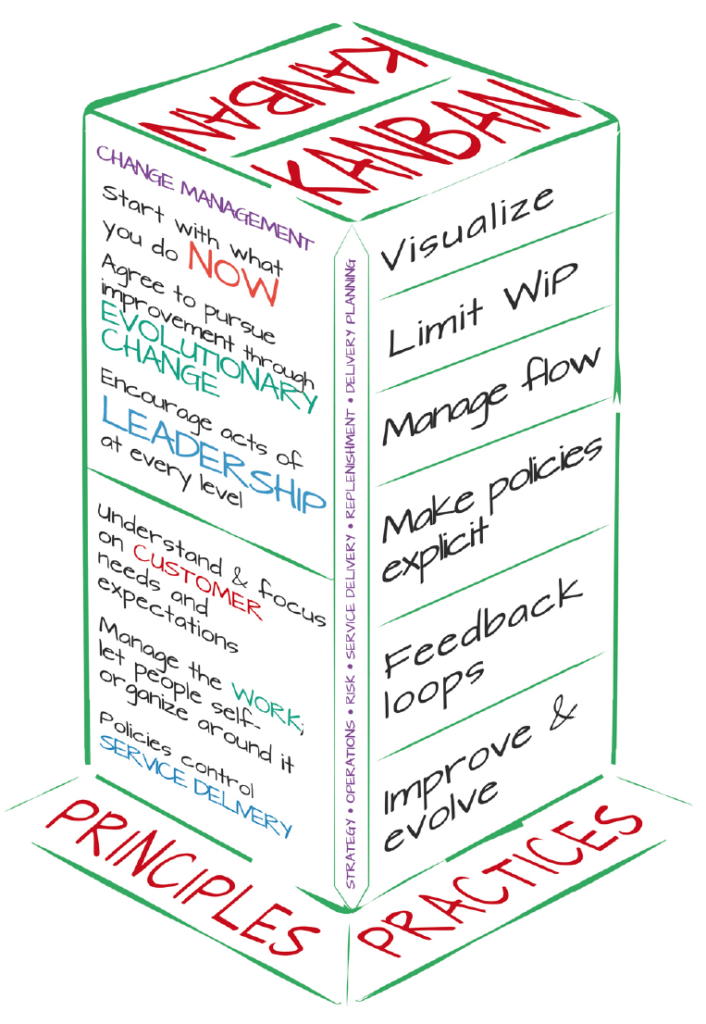
La ruta alternativa a la agilidad de Kanban University
Esta clase supone la entrada a la ruta alternativa a la agilidad y refleja la realidad del mercado de que la mayoría de las iniciativas Kanban comienzan a nivel equipo.
Kanban University
Los cursos de Kanban University son la mejor manera de aprender como llevar tu organización al siguiente nivel utilizando este innovador método, basado en Lean.
La certificación TKP
Todos los participantes que finalizan el curso Team Kanban Practitioner reciben una certificación de asistencia además de la acreditación en su perfil de la Kanban University de poseer la credencial Team Kanban Practitioner. No es necesario examen.
Sólo un día. Cargada de valor
Tanto si ya conoces Kanban como si este es tu primer acercamiento, en esta clase obtendrás todo lo necesario para poder comenzar una iniciativa que use el método Kanban y empezar a agilizar tus operaciones

¿A quien va dirigida?
Después de esta clase, habrás aprendido diferentes estilos de tableros kanban y cómo elegir el estilo correcto para tu forma de trabajar.
También aprenderás como comportarte y colaborar cuando se practica Kanban a nivel equipo. Podrás volver a la oficina e implementar un tablero Kanban para equipos (un protokanban) y empezar a usarlo a nivel local.
Conseguirás entender mejor como funciona un flujo de trabajo de service delivery con un sistema pull y por qué seguir avanzando en el conocimiento de Kanban con la credencial Kanban Management Professional es importante y un paso de mucho valor en tu camino hacia la ruta alternativa de la agilidad.
Scrum Masters
Si te encargas de gestionar Scrum en uno o varios equipos, los conocimientos de este curso te ayudaran a mejorar tu efectividad y te enseñarán técnicas nuevas para afrontar retos.
Equipos Kanban
Esta clase, que cubre la agenda de sostenibilidad del marco de Kanban University, es el punto de entrada para miembros de equipos que utilizan o pretenden utilizar Kanban en su día a día.
Agile Coaches
Cuando estás inmerso en una transformación ágil de una organización, conocer de verdad cómo funcionan las mecánicas de Scrum para poder dar soluciones a problemas es básico.
Managers
Aquellos que más responsabilidad tienen en el éxito de una iniciativa como Kanban en una organización son los que mejor deben de conocer sus mecánicas y sus técnicas más avanzadas.
Preguntas frecuentes
Las preguntas más frecuentes sobre el curso oficial de Team Kanban Practitioner de Kanban University
¿Incluye certificación?
Si. La asistencia a la clase Team Kanban Practitioner incluye, además de un certificado de asistencia, la acreditación profesional TKP del mismo nombre.
¿Que incluye el precio?
El precio incluye el curso, material, 2 intentos para el examen de certificación, desayunos y comidas durante la duración del curso, además del acceso a nuestra comunidad de alumnos y guías específicas.
¿Obtendré PDUs/SDUs en este curso?
Sí. Este curso califica para la obtención de 7 PDUs del Project Management Institute o 7 SDUs de la Scrum Alliance, para la renovación de las certificaciones PMP, PMI-ACP, CSP-SM y CSP-PO.
Opiniones de los alumnos.
Más de 5.000 alumnos desde el 2015 avalan nuestra experiencia y calidad de aprendizaje.
Jerónimo me ha parecido un gran profesional con mucha experiencia en el mundo Agile y una gran seriedad. Me ha ayudado aportándome soluciones concretas a problemas que me habían ido surgiendo a lo largo de mi vida laboral

Lorena Pazos
Mutua MadrileñaEs un curso muy profesional, orientado a que empleemos el pensamiento crítico para entender los fundamentos de Scrum y no incorpora nada de “show”.

José Manuel Beas
IndraA mi me gustó, porque es lo que es, un curso sobre el framework. Te enseña a separar lo core , de lo accesorio, haciendo que el cargo cult que suele haber detrás en equipos que empiezan se minimice. O por lo menos lo entiendas mejor.

Antonio de la Torre
CodesaiTrabajamos con las mejores empresas.
Desde multinacionales cotizadas en el mercado de valores hasta pequeñas Startups que se han convertido en Unicornios.





Contáctanos si necesitas más información
Estaremos encantados de atender cualquier duda que tengas sobre este curso.
Jerónimo Palacios & Associates S.L.
Casas de Miravete, 22-24 Edif. A Planta 4ª, 28031, Madrid, España
Email: [email protected]
Phone: +34 910 059 372
